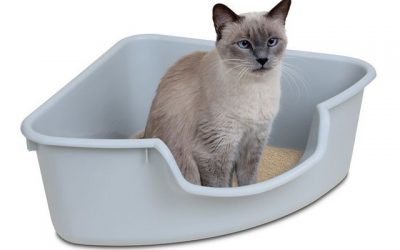What You Didn’t Know About Spaying and Neutering
By Dr. Richard Long and Leann Soon
We all know the importance of spaying and neutering our cats and dogs to minimize unexpected litters and the reduce number of unwanted kittens and puppies, but did you know there are many other important reasons to spay or neuter your pet?
But first – what is spaying, and what is neutering? Both mean the removal of your cat or dog’s reproductive organs, but females are spayed (usually their ovaries and uterus) and males are neutered (their testicles). Spaying and neutering are common procedures and veterinarians are very familiar with them. Many clinics will spay and neuter on an out-patient basis, so you don’t have to be separated from your pets for long. Also, you can ask your clinic if it offers pre-operative blood tests that check the health of internal organs that remove anesthetic from your pet’s blood stream and helps him or her wake up. However, if you still have concerns over your pet’s (likely) first surgery, here are some other facts to consider.
Medical Merits
One of the best benefits of spaying and neutering is the significant reduction in cancer of the testicles, ovaries, uterus and mammary glands. In addition, female pets experience less uterine infections and spot less while in heat. Studies have also shown that neutered male pets can live up to 15% longer, and spayed females up to 30%, which is a huge difference in the amount of time you get to spend with your furry loved ones!
Behavioural Benefits
Neutering your pet will very likely reduce male-on-male aggression in your dog or cat. They will engage in less urine marking (no more multiple leg lifts on a single walk!) and dogs will mount and bark less. Neutering should also curb roaming in cats, which translates to fewer injuries from getting hit by cars and fights with other cats, and infectious disease as a result. Spayed cats will also yowl less when they are in heat, which anyone who has a yowl-y cat will appreciate.
Keep in mind, neutering or spaying alone isn’t a substitute for good training!
Curbing Costs
While you have to incur the costs for these procedures up front, it could save you money in the long run – hopefully proactively spaying or neutering your pet means you avoid high bills for cancer surgeries and treatments, unexpected costs of injuries from fights and car accidents, and fines for pets caught roaming down the road. Most of all, curbing your cat’s desire to roam could save you the heartache of a lost pet.
Beware of the Myths!
Many myths about spaying and neutering have made their rounds, but we are putting them to rest! It is NOT true that spayed or neutered pets get fat – poor diets and a lack of exercise are what make pets overweight. As with us humans, your pet’s diet must be tailored to your pet’s lifecycle and lifestyle. Other people have said that dogs and cats behave better after having a litter, but once they are done nursing and their hormones return to normal, they go right back to same behaviour, good or bad!
So When’s the Best Time?
Now that you’re all caught up on why spaying and neutering are important for you and your pets, you need to figure out when to book the appointment, which is usually before puberty and after your pet is old enough to take anesthesia well. While this has traditionally been at about six months of age, studies have indicated that some large breeds have healthier joints throughout their lives if neutered later, such as between 12 to 18 months of age. The biggest takeaway is to consult with your veterinarian to find the what’s best for your pet.
Summer 50-50 Raffle!
July 29th Update: Congradulations to Roybn Gold for winning $4500! We want our community to win big this summer! Share, purchase and spread awareness of Parachutes for Pets this summer with our Summer 50-50 cash raffle. Our calls for help are far outweighing our...
Homeless with Pets on the Rise in Calgary
by Isabella Steed It is an unimaginable circumstance for those who have not lost a home. To be wary of your next meal, to fear whether or not you will have a place to sleep at night other than the comforts of cold grass and pavement. Unfortunately, this is a reality...
Urinary Obstructions in Pets
Dr. Alison Carter, MVB, DVM Not being able to urinate can be a life-threatening emergency. This can occur in both dogs and cats but is most commonly seen in larger male cats. Generally clinical signs will start with straining to urinate, wanting to urinate more...
Pets love for free, but they are not!
By Leann Soon & Dr. R. Long As we have all seen, the COVID pandemic has led to an explosion in pet ownership. While staying at home more can be a great opportunity to add a new, loving pet to your family, if you haven’t fully considered the true costs associated...
Parachutes for Pets – Spotlighting our Wonderful Volunteers and Partners
By Leann Soon Parachutes for Pets would not be where it is today without our wonderful volunteers and partners! To give you a glimpse behind the scenes, we would love to introduce you to Erika, one of our volunteers, and Unleashed, one of our partners. Erika Erika...
A Minute on the Lips, Forever on the Hips
By Leann Soon and Dr. Richard Long A big yet common problem that many of our pets are facing is being overweight. Many of us don’t realize this, but every little treat our dogs and cats get each day contributes to the extra weight they carry around, which makes...
Seniors and Pets – The Benefits By Lori Leduc
If your parents are of a certain age, 65 plus, you may have spent the last 18 months or so being concerned about their wellbeing. You may have noticed a lack of motivation or purpose. The Pandemic opened the eyes of many to the plight of our seniors. Fortunately,...
Suzanne the Superhero
Suzanne the SuperheroBy Leann SoonSuzanne is not your average contributor to Parachutes for Pets, and she’s not your average dog lover. While the pandemic hit a lot of entrepreneurs very hard, she turned it into an opportunity to heal our community, not medically, but...
Meet the Jones Family
Meet the Jones Family – From Clients to Dedicated VolunteersBy Leann SoonWe would love to introduce you to the Jones family, comprised of Colleen, her daughters Rebbekkah and Naomi, their three cats (Nemo, Tazz and Princess Peanut) and two guinea pigs (Oliver and...
All About Ticks
Don’t Get Ticked Off! April signals the advent of tick season, which lasts until October. However, ticks are also active whenever it’s warmer than 4 degrees Celsius, so it’s important to be aware of the hazards they pose all year round. Here are some tips on what to...











